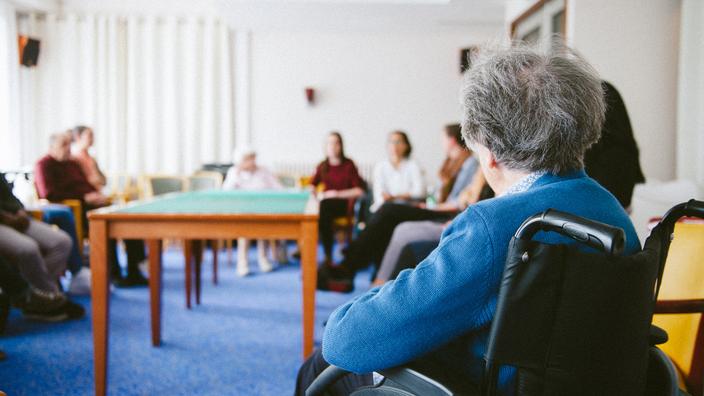Blood tests could one day detect patients at risk of developing Alzheimer's disease, by measuring the levels of two molecules in their blood, according to preliminary research released Monday, November 30.
Depending on the concentration of these two molecules, called ptau 181 and NfL, we could predict a future progression of Alzheimer's disease in individuals with mild cognitive impairment, according to this work published in the specialized journal
Nature Aging
.
Read also: "Fighting the fatalistic view of Alzheimer's disease"
Swedish and British researchers base their conclusions on examining data from some 570 patients.
The experimental test was able to predict Alzheimer's development in patients with 88% accuracy over a four-year period.
According to the WHO (World Health Organization), 50 million people are affected by dementia worldwide, with 60 to 70% of cases caused by Alzheimer's disease.
There is no cure for this disease, which results in brain degeneration and memory loss.
In recent years, several experimental studies have given hope for progress in its early detection, which, however, has not yet translated into concrete advances in real life.
"
If these blood markers can predict the onset of Alzheimer's in larger and more heterogeneous groups, we could witness a revolution,
" hoped Richard Oakley, head of research at the charity Alzheimer's Society, cited by the British organization Science Media Center (SMC).
Read also: "In this Covid-19 crisis, caregivers of Alzheimer's patients are alone and receive little help"
For Musaid Husain, professor of neurology at the University of Oxford, this track could “
potentially be a game changer
”.
"
These results must be confirmed but in the context of other recent work, this could be an important step towards an earlier diagnosis, as well as towards the experimentation of new treatments at a less advanced stage of the disease,
" he said. he continued, quoted by the SMC.

